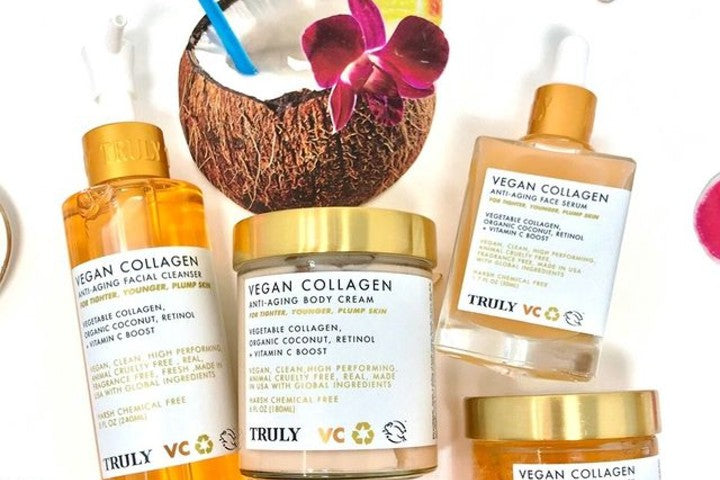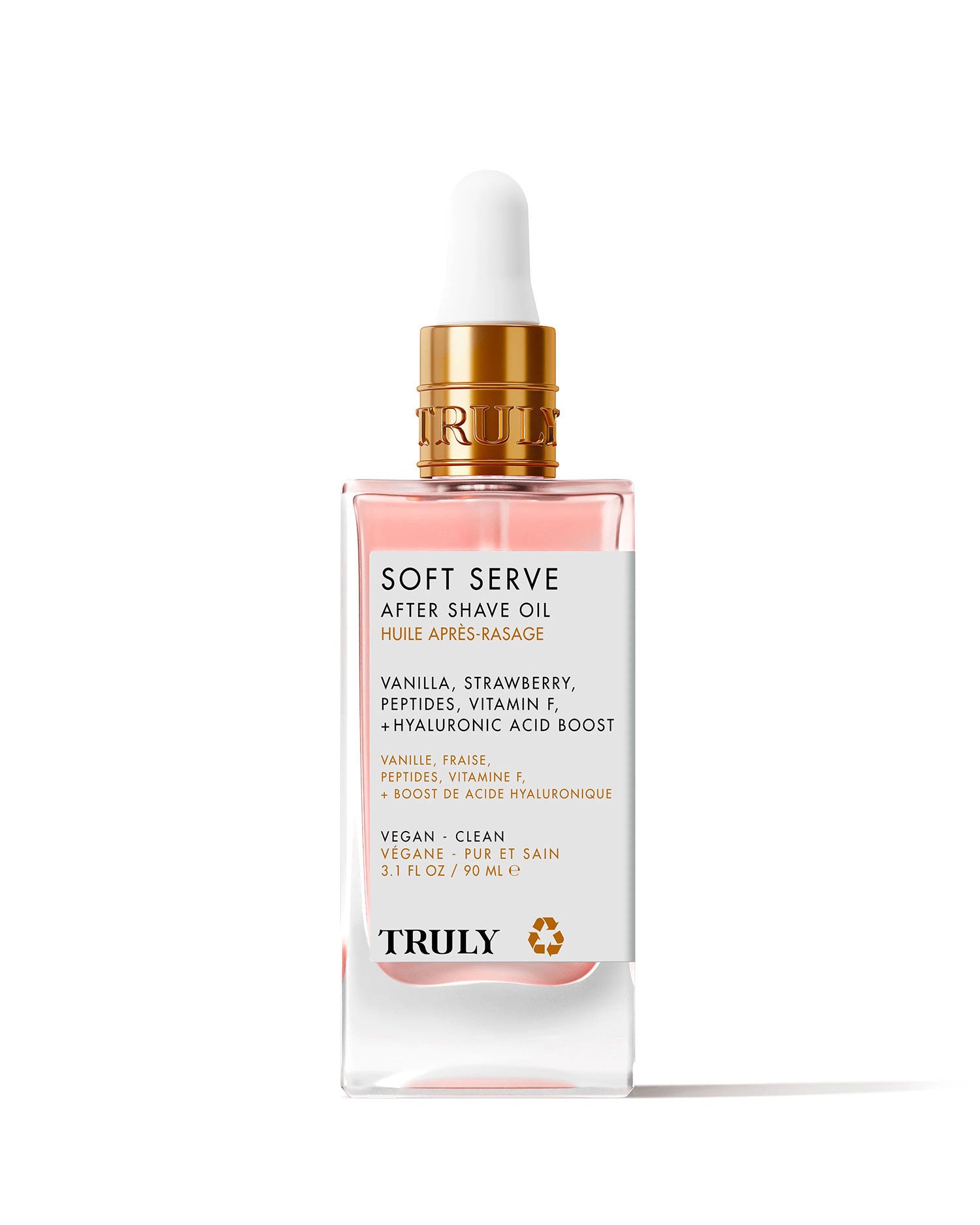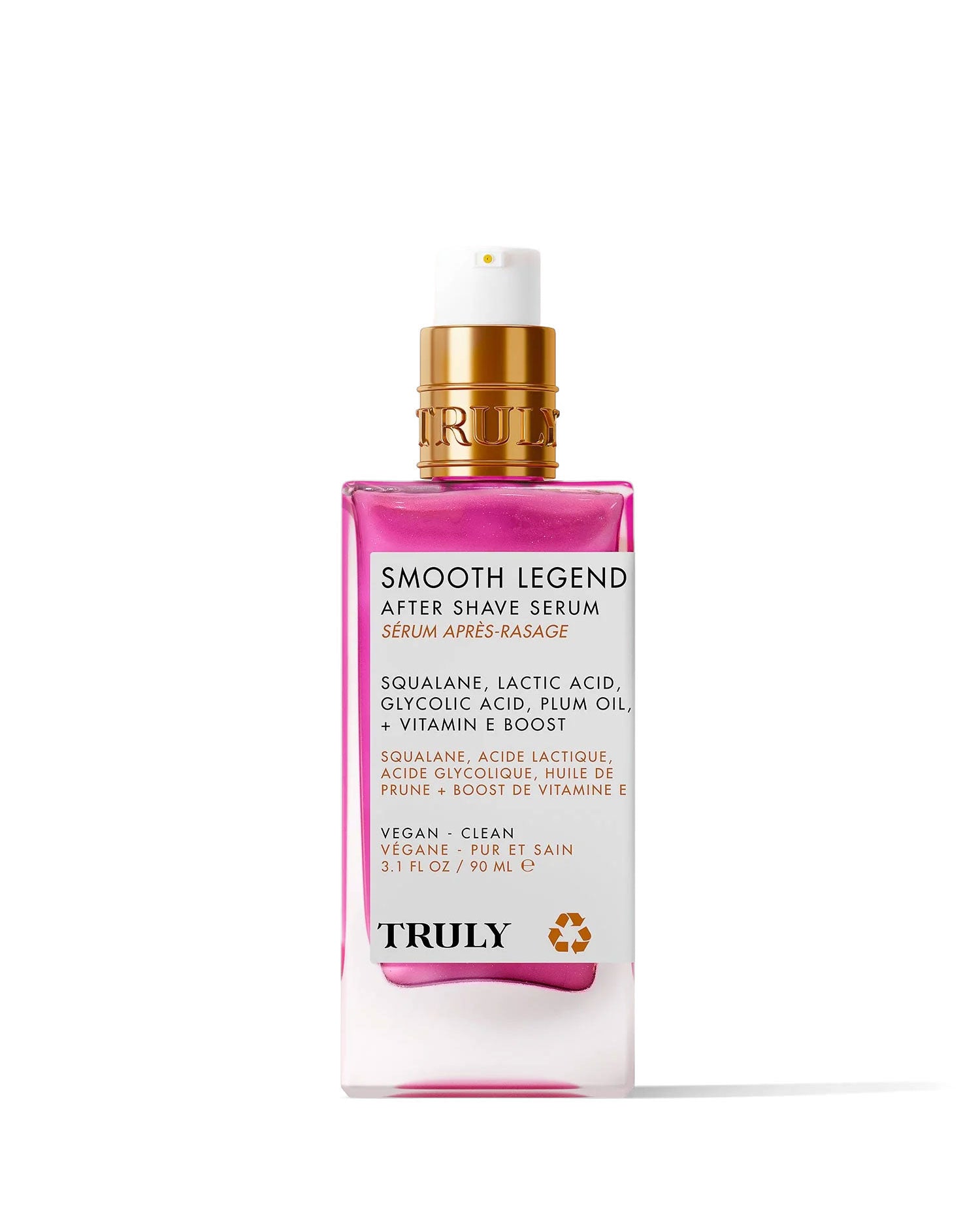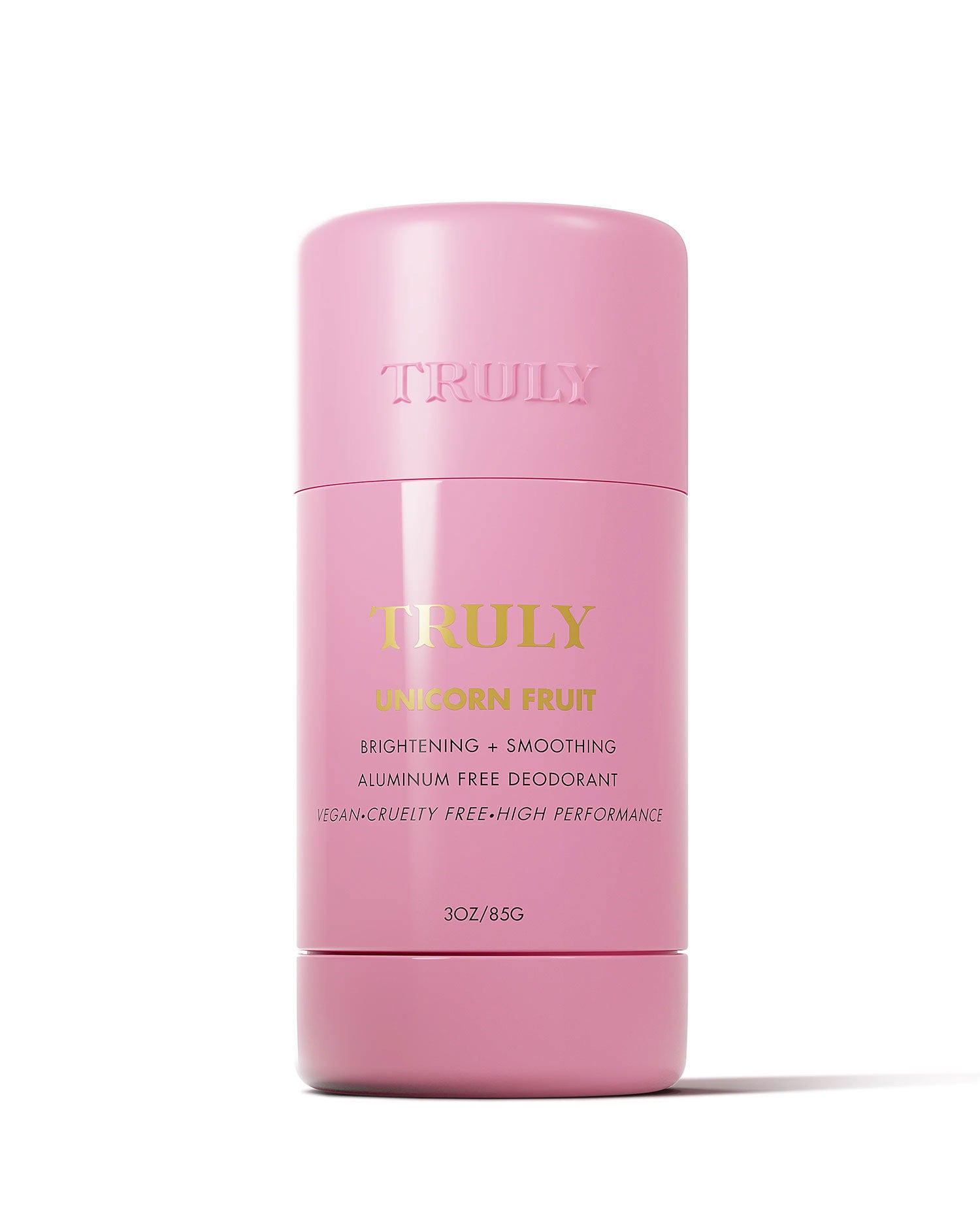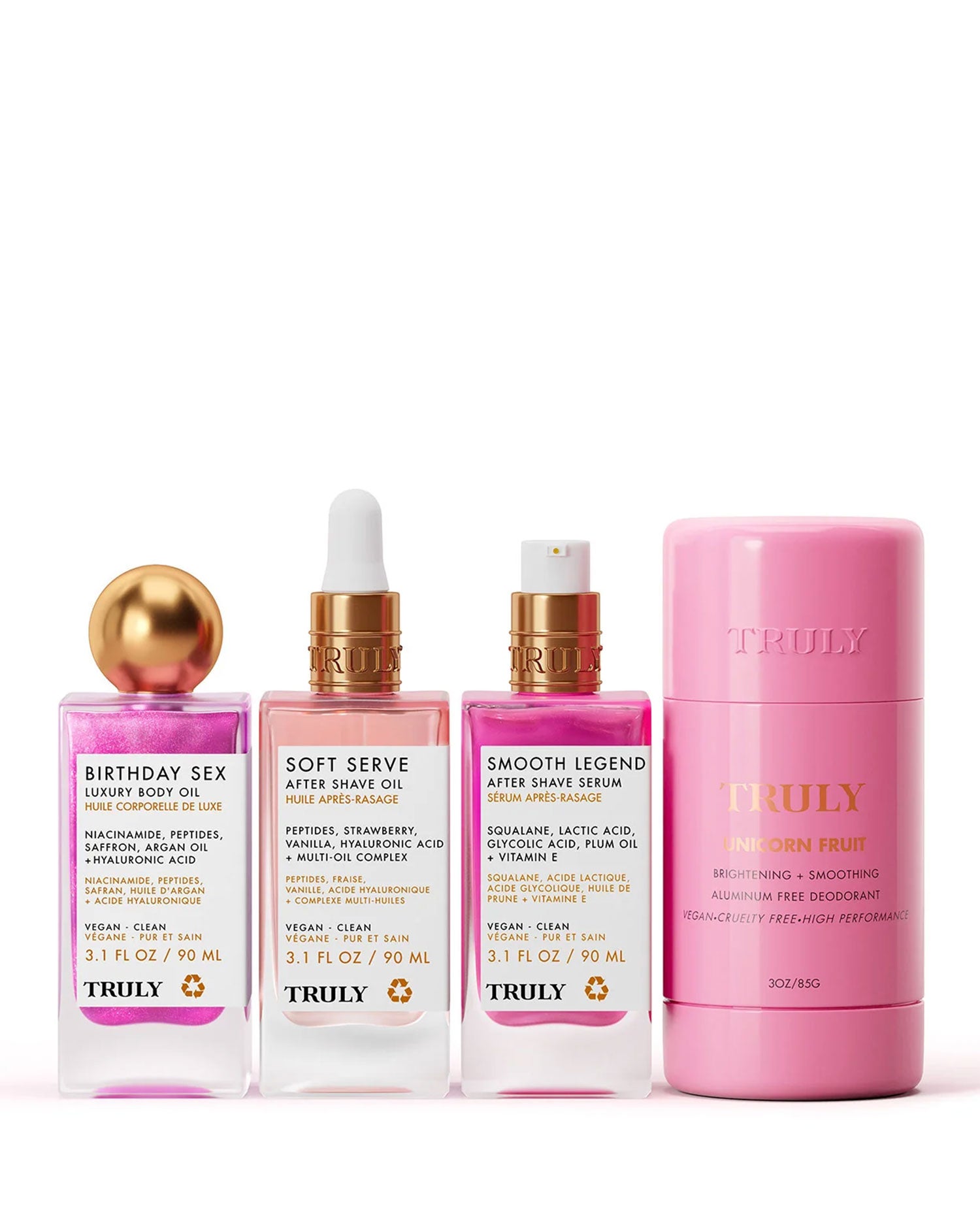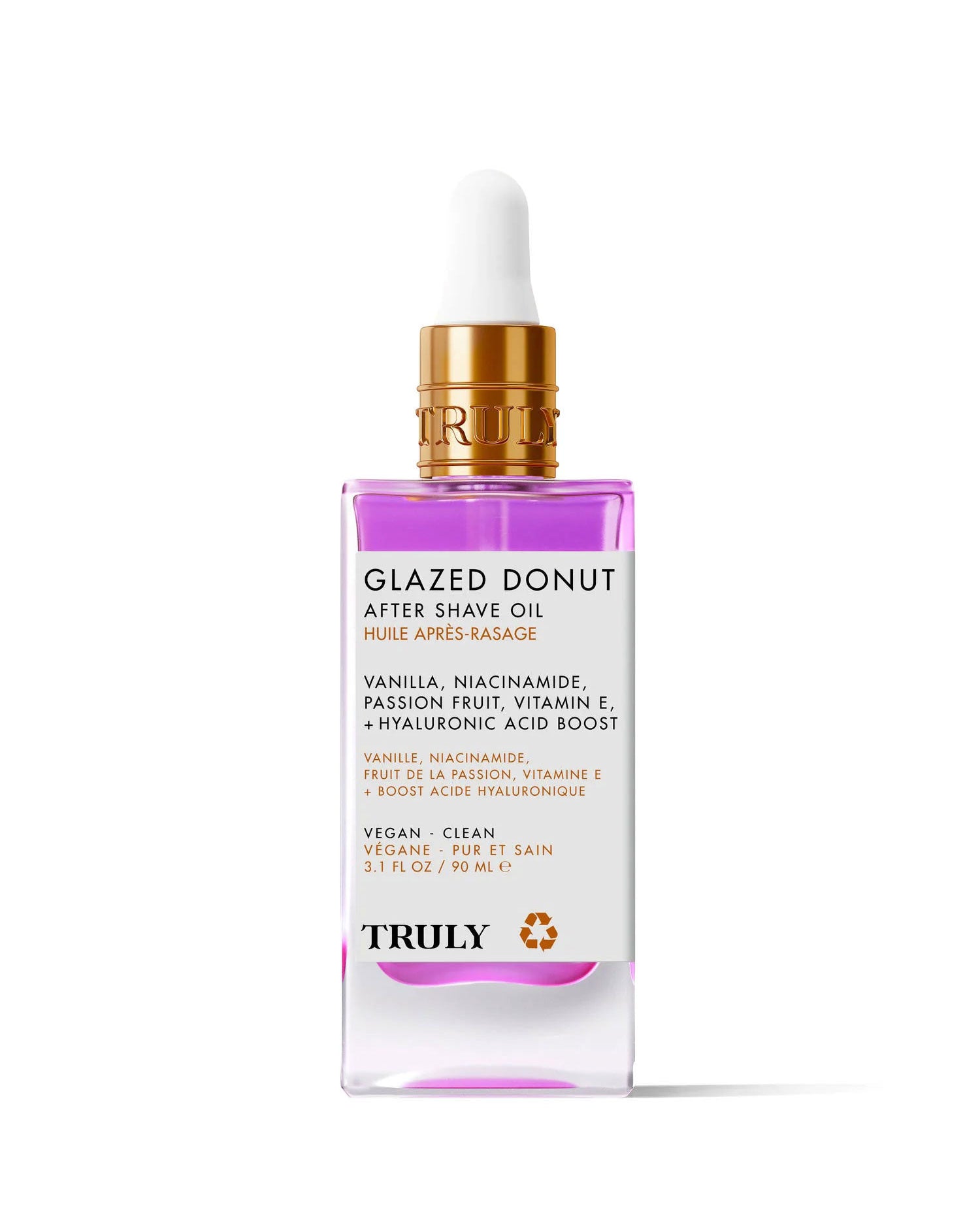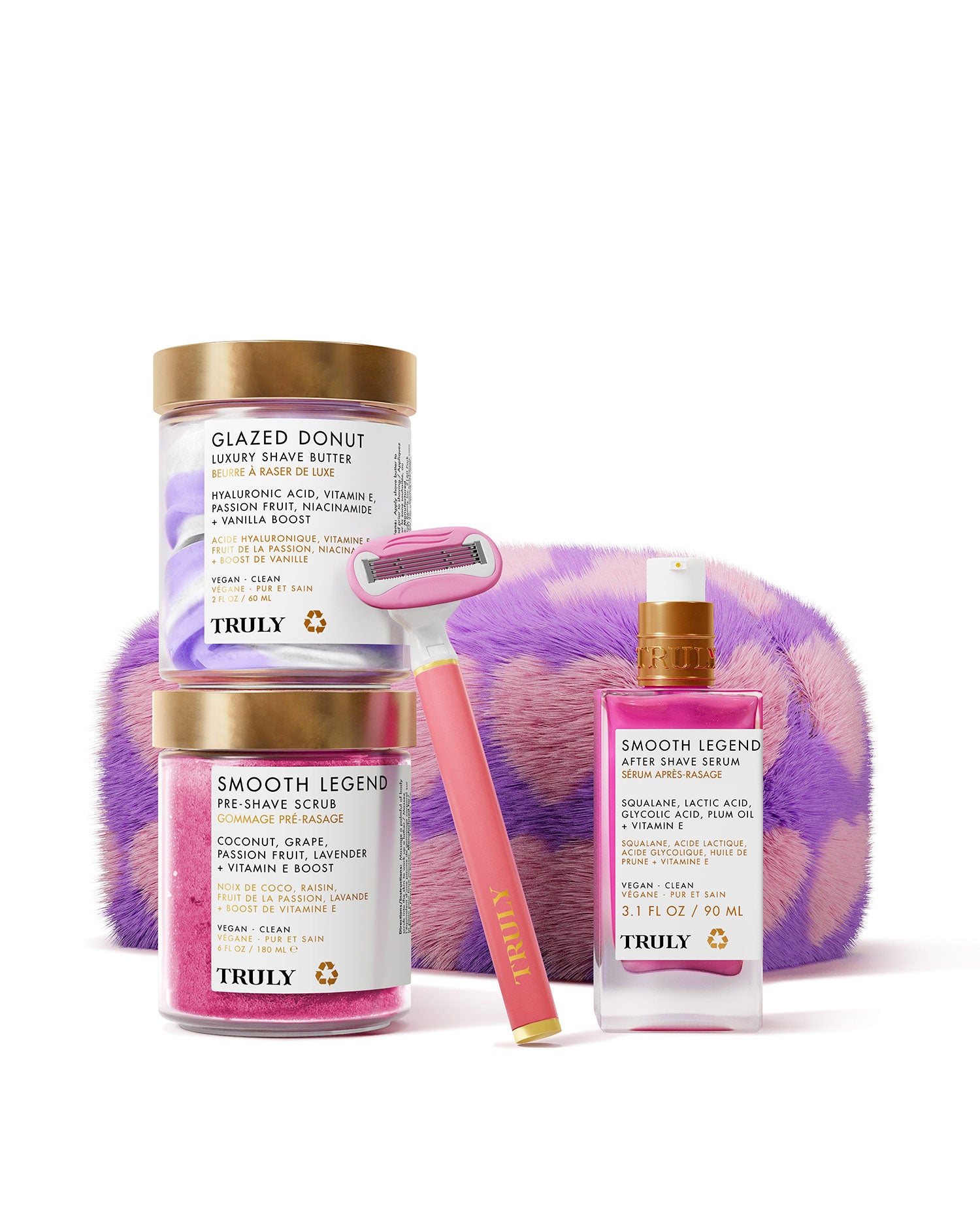Collagen is Made Of What?
June 04, 2021
By: Truly Beauty
You’ve heard of it, but do you know its deepest, darkest secrets?
While your body naturally makes collagen, many people are going elsewhere to get collagen. Serums, creams, and other beauty products feature collagen, which is a protein that offers anti-aging benefits.
Many people are choosing to use collagen because it can improve hydration, density, and elasticity. It’s now being hailed as one of the most important ingredients when it comes to maintaining that youthful glow. While it can positively impact the body and the aging process, collagen users should know exactly where the protein is coming from.
Scroll down to find out more!
WHAT IS COLLAGEN?
Collagen is a protein that occurs naturally in the body. It’s found in all connective tissue throughout the body. 70% of the skin’s protein is collagen, making up a large part of the human body.
As you age, your body stops producing as much collagen. This is where the supplements and creams come in. People are attempting to replace the lost collagen so they can fight against the signs of aging. When your body slows its collagen production, you may notice wrinkles, larger pores, and an older-looking face. A lack of collagen can also appear as achy joints.
When you are about 25 years old, you will lose about 1% of your collagen each year. As you lose more and more of your collagen, you will see more and more signs of aging. This may be why you are considering adding collagen to your skincare routine now. Maybe you realized that your collagen is seriously diminishing, and you need another way to prevent aging.
There are a couple of ways that people attempt to increase the collagen in their bodies. First, they use vitamin C, peptides, retinol, and other ingredients to stimulate collagen production. Now, another way that people are taking in this vital protein is through collagen-based products.
Using a collagen-based product may not sound so bad. You might have heard some promising evidence about the protein. Before jumping into using collagen on your skin, you should know about its odd sourcing.
WHERE DOES COLLAGEN COME FROM?
Collagen isn’t your average skincare ingredient. It comes from non-vegan and non-vegetarian sources, including cows, fish, and pigs.
This means that you may be using another animal’s collagen rather than using the collagen in your body. Those aren’t the only places where collagen is sourced, though. Some of the dark places that collagen comes from include human foreskins and stem cells.
On a collagen product, you won’t see these words in particular. If a product contains human foreskins, you will see neonatal fibroblasts on the label. Notably, the foreskins used come from babies. Foreskins are easy to find and utilize in skincare products.
The reason that baby foreskins are used is that their skin is young and looks its best. This is when the skin is least likely to show any signs of aging or damage. While young children may have some skin conditions, it’s usually not anything serious. For this reason, baby skin, specifically foreskins, is used in collagen products.
Stem cells, in general, are used in collagen products. While baby foreskins are one source of stem cells, the cells are also taken from aborted fetuses. Again, this is because the skin is young, it’s preferred to other sources of stem cells.
Dr. Gail Naughton, an expert in regenerative science, says, “ growth factors captured from the donated foreskin of a baby (just one can generate over a million treatments) are at their peak ability in promoting rapid cell turnover. Applied topically, they spur adult skin cells to regenerate. This is said to have a smoothing effect on the skin.”
Despite collagen’s popularity right now, baby foreskins being used in beauty products is not new. Oprah Winfrey previously promoted a SkinMedica facial cream that contains “foreskin fibroblasts” for the same purpose. The HydraFacial, which is offered at many different spas, uses fibroblasts as well. The fibroblasts are sometimes referred to as “growth hormones.” While they do contribute to collagen growth, people aren’t so sure about these specific ingredients.
ARE THERE ALTERNATIVES TO COLLAGEN?
After learning about the collagen industry’s dark secrets, you might be wondering if another product can provide the same results. After all, collagen has become a massive success in the beauty world. Fortunately, there are other ways to slow aging. Some companies are even creating vegan collagen products, which means they don’t contain any animal products. Plants have collagen, and it can be used the same way.
Experts recommend consuming foods that can boost the body’s collagen production if you want to avoid animal collagen. Foods like coconut, avocado, green, orange, and red vegetables contain the necessary nutrients for collagen production. You can also up your intake of vitamin C to help promote collagen production.
Plant-based collagen products seem to be rising in popularity, which should help to decrease the need to use animal-based products. More companies are finding ways to make similar creams and serums that don’t use ingredients that raise eyebrows. Scientists are attempting to create a vegan alternative to collagen by genetically modifying yeast and bacteria. In the future, bio-engineered vegan collagen options may become available. There is still work to be done, so as research advances, additional ingredients may be used to create a plant-based product.
Plant-based or vegan collagen options may be preferred to animal varieties if you are following a specific diet or lifestyle. Other people might choose these options for ethical reasons. If you don’t agree with the use of babies’ foreskin or stem cells, a vegan product can help you to get the same results as animal collagen.
Ultimately, it’s your choice whether you use collagen products or not. If you’re unsure about using collagen, rest assured that you can use one of these other options to help with aging without having an ethical battle with yourself.






